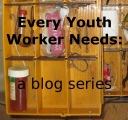“A shift in the thinking and actions of citizens is more vital than a shift in the thinking and actions of institutions and formal leaders.”
taken from Community: The Structure of Belonging by Peter Block
I read Community several months ago and have been thinking through the implications of its content ever since. This particular quote has generated a lot of pondering and wrestling in my head.
As a youth minister, there are things I want to see changed or focused on within the context of the congregation within which I work. There are attitudes that need adjusting, focuses that need fine-tuned, understanding that needs broadened, lessons that need learned, and apathy that needs shaken. There are even changes that need to happen, but can only happen when there is a shift in the culture. And changing a church culture is no easy task.
As Block points out the best (only?) way to change a culture is to shift the thinking and actions of the people in the community you want to change. What community culture do you want to see shifted?
- A Sunday School class.
- The youth ministry.
- Your volunteer team.
- Staff dynamics.
- Church leadership.
- Awana group.
- Your small group.
- Parents of your students.
- Your family.
Changing any of these communities will take effort and time. If you are a leader of the community, you have a vital role in helping to shift the actions and thinking of the people within the community. You need to be intentional about changing your thinking, actions, and language. Since you want to see the changes, you have already made the mental shift. You might have even made a shift in how you plan, organize or promote things in order to show the shift. But the most important step (and one that gets forgotten by many leaders) is to verbalize and share your thinking on the shift.
Do you need to change how you talk about a topic? It could be as simple as changing the way you promote the Sunday School class. For example, if you want to shift the class to be more about discipleship than fellowship you will need to stop talking about how much “fun” class is and start using phrases that reflect the depth of the studies.
Do you want church to be less about attendance on Sunday and more about living a life for Christ every day? If you are a leader, you need to help the congregation shift their thinking from the one to the other. How can you help people see the Christian life as more than a checklist? A few possibilities include: speaking about the shift from up-front, changing the way you evaluate and discuss the ministry of the church, or spending time sharing the need for the shift with a few “key” people who can help you champion the changes.
What would you add to this conversation? What have you learned about changing culture?

 I Am Second
I Am Second This is a review my wife wrote after reading the book, “Cut Your Grocery Bill in Half” by Steve & Annette Economides
This is a review my wife wrote after reading the book, “Cut Your Grocery Bill in Half” by Steve & Annette Economides

 In Jolt!, Phil Cooke set out to write a book to help people navigate a constantly changing world. My first question when I saw this book was, “Is it possible to effectively write a book, which takes over a year from start to finish, about changing culture.” This was a question I was curious to answer, so I read Jolt! and made my own decision.
In Jolt!, Phil Cooke set out to write a book to help people navigate a constantly changing world. My first question when I saw this book was, “Is it possible to effectively write a book, which takes over a year from start to finish, about changing culture.” This was a question I was curious to answer, so I read Jolt! and made my own decision.
